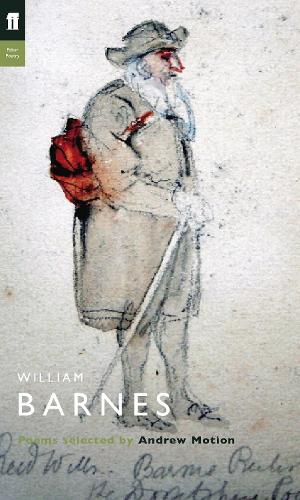
William Barnes
(Paperback, Main - Poet to Poet)
Publishing Details
William Barnes
By (Author) Sir Andrew Motion
Faber & Faber
Faber & Faber
1st May 2007
5th April 2007
Main - Poet to Poet
United Kingdom
Classifications
Tertiary Education
Non Fiction
Literary studies: c 1800 to c 1900
821.8
Physical Properties
Paperback
144
Width 120mm, Height 198mm, Spine 10mm
100g
Description
In this series, a contemporary poet selects and introduces a poet of the past. By their choice of poems and by the personal and critical reactions they express in their prefaces, the editors offer insights into their own work as well as providing an accessible and passionate introduction to the most important poets in our literature. William Barnes was born in 1801 near Sturminster Newton in Dorset, of a farming family. He learned Greek, Latin and music, taught himself wood engraving, and in 1823 became a schoolmaster in Mere. He was deply interested in grammar and language, and waged a lifelong campaign to rid English of classical and foreign influences. Among his best-known books of poetry are Poems of Rural Life in the Dorset Dialect (1844) and Homely Rhymes (1859. His work has often been praised for its evocations of Dorset life, landscape and customs; he also wrote political poems of great power and was a master elegist. Barnes died in 1886.
Author Bio
Andrew Motion was UK Poet Laureate from 1999 to 2009, is co-founder of the online Poetry Archive, and has written acclaimed biographies of Philip Larkin and John Keats among others. His memoir of childhood, In the Blood, was published in 2006, and its sequel, Sleeping on Islands: A Life in Poetry, appeared alongside Selected Poems: 1977 - 2022 in 2023. He is Homewood Professor in the Arts at Johns Hopkins University, and lives in Baltimore.
